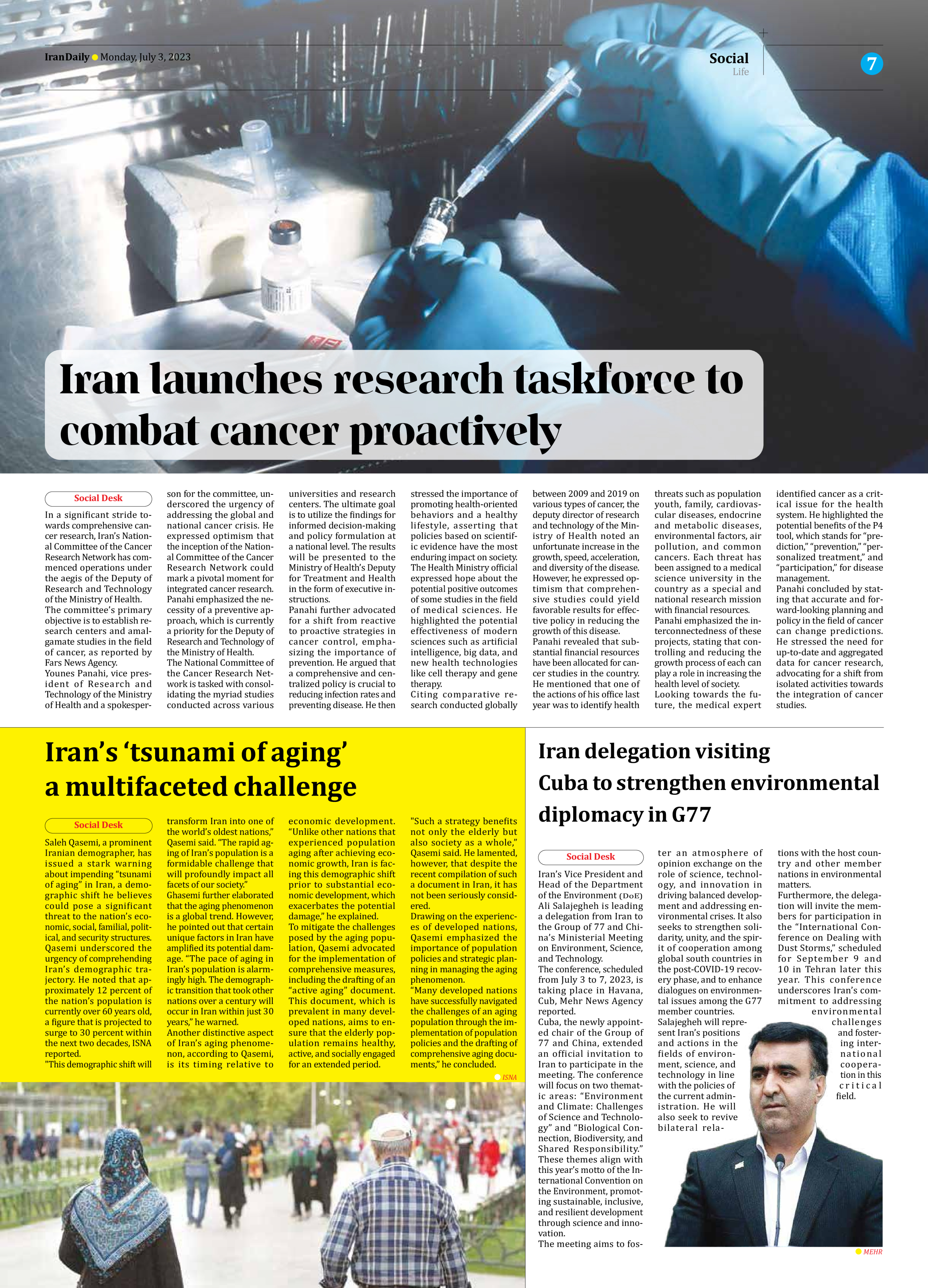
Iran launches research taskforce to combat cancer proactively
In a significant stride towards comprehensive cancer research, Iran’s National Committee of the Cancer Research Network has commenced operations under the aegis of the Deputy of Research and Technology of the Ministry of Health.
The committee’s primary objective is to establish research centers and amalgamate studies in the field of cancer, as reported by Fars News Agency.
Younes Panahi, vice president of Research and Technology of the Ministry of Health and a spokesperson for the committee, underscored the urgency of addressing the global and national cancer crisis. He expressed optimism that the inception of the National Committee of the Cancer Research Network could mark a pivotal moment for integrated cancer research. Panahi emphasized the necessity of a preventive approach, which is currently a priority for the Deputy of Research and Technology of the Ministry of Health.
The National Committee of the Cancer Research Network is tasked with consolidating the myriad studies conducted across various universities and research centers. The ultimate goal is to utilize the findings for informed decision-making and policy formulation at a national level. The results will be presented to the Ministry of Health’s Deputy for Treatment and Health in the form of executive instructions.
Panahi further advocated for a shift from reactive to proactive strategies in cancer control, emphasizing the importance of prevention. He argued that a comprehensive and centralized policy is crucial to reducing infection rates and preventing disease. He then stressed the importance of promoting health-oriented behaviors and a healthy lifestyle, asserting that policies based on scientific evidence have the most enduring impact on society.
The Health Ministry official expressed hope about the potential positive outcomes of some studies in the field of medical sciences. He highlighted the potential effectiveness of modern sciences such as artificial intelligence, big data, and new health technologies like cell therapy and gene therapy.
Citing comparative research conducted globally between 2009 and 2019 on various types of cancer, the deputy director of research and technology of the Ministry of Health noted an unfortunate increase in the growth, speed, acceleration, and diversity of the disease. However, he expressed optimism that comprehensive studies could yield favorable results for effective policy in reducing the growth of this disease.
Panahi revealed that substantial financial resources have been allocated for cancer studies in the country. He mentioned that one of the actions of his office last year was to identify health threats such as population youth, family, cardiovascular diseases, endocrine and metabolic diseases, environmental factors, air pollution, and common cancers. Each threat has been assigned to a medical science university in the country as a special and national research mission with financial resources.
Panahi emphasized the interconnectedness of these projects, stating that controlling and reducing the growth process of each can play a role in increasing the health level of society.
Looking towards the future, the medical expert identified cancer as a critical issue for the health system. He highlighted the potential benefits of the P4 tool, which stands for “prediction,” “prevention,” “personalized treatment,” and “participation,” for disease management.
Panahi concluded by stating that accurate and forward-looking planning and policy in the field of cancer can change predictions. He stressed the need for up-to-date and aggregated data for cancer research, advocating for a shift from isolated activities towards the integration of cancer studies.







